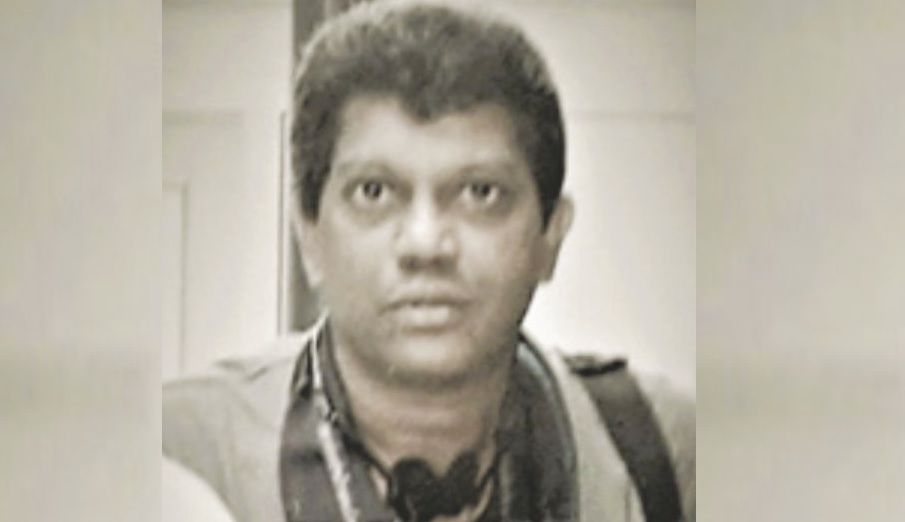‘Your headline lacks charity’
The offending headline was my attentiongrabbing, dramatic one-liner: “Bury the brain dead, says expert.” Yes, you read it right — “brain dead” as in patients occupying critical care unit beds.
Apr 18, 2025

Of all people, who would have thought that I would receive a lesson on ethical journalism from “none other than” Anthony Cardinal Soter Fernandez?
As I write this, I am unsure whether to consider myself a “lucky journalist” for having benefited from a cardinal’s tutelage on headline writing — or to hang my head in shame for sensationalising a story that earned me the late prelate’s blunt reprimand.
Ensconced in my sacrosanct newsroom, I never expected anyone outside my professional circle to intrude into my editorial domain. But then my phone rang. On the line was Rome’s first Malaysian Prince of the Church — the unassuming Cardinal Soter, whose legendary humility and fellow-feeling empathy were well known.
He wasted no time. “Your headline lacks charity. Be kind to the unfortunate!” he admonished.
Instantly, I knew what he was referring to.
The offending headline was my attentiongrabbing, dramatic one-liner: “Bury the brain dead, says expert.” Yes, you read it right — “brain dead” as in patients occupying critical care unit beds.
It was the lead story on page six of theSun daily that day, glaringly tagged to my byline.
In his exhortation, Cardinal Soter said: “I am not quarrelling with medical science or the experts. They may be right. But imagine the hundreds of people keeping vigil in hospitals for their loved ones right now. How would they react to your headline?
“Always be kind to the sick and dying.
“As long as there is life, there is hope,” he added, referring to the many critically ill patients confined to ICU beds.
Of course, I agreed with the prelate that modern intensive care medicine has its place, and many patients have been treated, recovered, and returned home hale and hearty.
At the Lecture Hall
I recall that day, several years ago, when I sneaked into the auditorium of the Tun Tan Cheng Loke School of Nursing at Assunta Hospital. The country’s doyen of anaesthesiology, Prof Emeritus Alex Delilkan, was slated to speak to nurses on Ethical Considerations at the End of Life Care.
Delilkan, a medical icon and wicketkeeper of medical ethics (he was also a renowned cricketer), made history by establishing Malaysia’s first intensive care unit at Universiti Hospital in Petaling Jaya in 1969. I had heard him speak before and had always marvelled at his insightful takes on the many ethical dilemmas facing the medical field. Delilkan had a distinct and engaging way of speaking — what I have come to call “Delilkanese.” His lectures were never without a discordant note or, at times, a jarring arcane — something that often unsettled the medical fraternity.
His sarcastic witticisms also stood out. Once, during a lecture at a teaching hospital, he remarked: “Modern hospitals want to go paperless. I just went to the gents and realised that the toilet is also paperless. No toilet paper lah!” The audience erupted in laughter. Just the lull that was needed to dilute his institutional-type of lectures.
Delilkan Speaks
“In cases of brain death, medical technology can temporarily maintain bodily functions like breathing and heart rate, though the brain itself is irreversibly damaged and no longer functioning,” he explained to the nurses.
“Brain death occurs when the brain, including the brainstem, has completely and irreversibly stopped functioning. While machines like ventilators can maintain breathing and medications can help keep the heart beating for a short time, these interventions cannot restore brain function or reverse the damage caused by brain death. Legally, these individuals are deceased.”
“The longest-known survivor declared braindead lived for nearly two decades after the loss of measurable brain activity and brainstem function. However, this is an exceptional case, not the norm,” Delilkan added.
The Bombshell!
Then came his trademark bombshell: “Braindead people must be buried!”
“If they are supported by artificial means for too long, then anyone entering the ICU will be welcomed by the stench of death!” he declared unapologetically.
At that moment, while the stunned nurses stared at the podium, the journalist in me went into overdrive, seizing on Delilkan’s provocative punchline: “Bury the brain dead.”
“What a scoop! I was the only journalist present — what a sensational headline this would make,” I thought. The temptation was too great to resist.
In journalism, as every reporter knows, “dog bites man is no news”, but “man bites dog” is. I subscribed to the latter principle and infused the “man bites dog” element into my headline. To be fair, Delilkan was not at fault for what he said. He was simply speaking in Delilkanese while presenting his scientific perspective. He had the right to do so.
And Cardinal Soter had his rights too, as a man of God. He was advocating for pastoral charity across all professions.
That said, all institutions have a responsibility to the public, and so do journalists.
My headline was the offending sore point. And so, I thump my chest and say: Mea culpa, mea culpa, mea maxima culpa (through my fault, through my fault, through my most grievous fault).
Joseph Masilamany was a pioneer reporter with the HERALD when Fr Lawrence Andrew SJ put the newspaper together under Cardinal Soter’s watch. A no-nonsense Jesuit, Fr Lawrence would never have approved such tabloid-like headline at the expense of objective reporting. Neither would Cardinal Soter! On Tuesday, April 22, Cardinal Soter celebrates his 94th birthday in the halls of heaven. Happy birthday, Cardinal! Thank you for that valuable lesson on responsible journalism. For this, I shall rejoice and sing the Exultate. Alleluia!
The writer can be reached at [email protected] or Whatsapp 6011-25160892







Total Comments:0